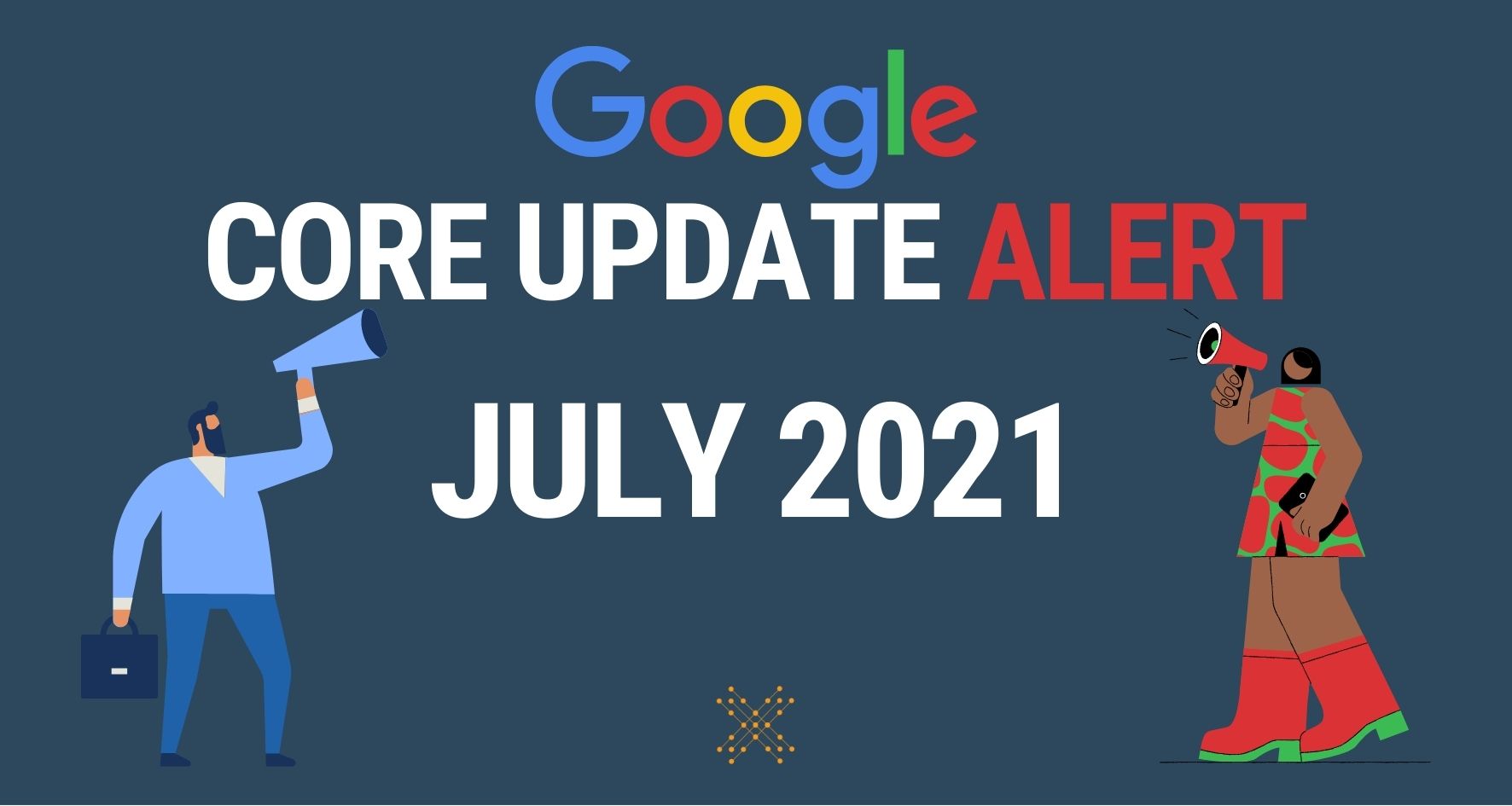
Google Core Update July 2021: What You Need to Know
July is over—and with it, so is Google’s July 2021 Core Update.
From July 1 to July 12, Google rolled out the second part of its summer 2021 core update. The first came in June. And while the July core update was noticeably smaller, it still had some big shake-ups.
Let’s dive into what this core update means, who's affected, and what you can do if it hit you.
July 2021 Core Update: The Details
Here’s what we know about the July 2021 Google Core Update:
- • The rollout occurred from July 1 to July 12. On July 12, Google SearchLiaison announced that the core update was “effectively complete”:
The July 2021 core update rollout is now effectively complete.
— Google SearchLiaison (@searchliaison) July 12, 2021
- • The biggest changes occurred July 2 and July 9. Data from Semrush shows search engine rankings changed the most on July 2 and July 9, followed by days of moderate-to-high volatility:

- • This core update was smaller than the June 2021 Core Update. Overall, the data show less volatility during this core update than during the June Core Update. That’s not to say, though, that some didn’t feel the effects.
- • The most affected search results categories were News and Arts & Entertainment. Other hard-hit industries include Autos & Vehicles, Beauty & Fitness, Shopping, and Business & Industrial. Travel—a sector that’s seen significant ranking changes since the start of the COVID-19 pandemic—remained relatively stable.
- • Domains with multiple country codes (.ca, .fr, .us, .uk) may have suffered. Evidence from Pinterest suggests that companies with multiple country-code domains may see a drop in rankings, particularly in those country-code domains. Lily Ray took to Twitter to demonstrate:
Here are the different Pinterest ccTLDs, which saw huge visibility increases in the U.S. throughout 2020. Those sites are taking a nosedive right now.
We have already noticed for some ecomm clients that product/category pages are replacing spots previously held by Pinterest. pic.twitter.com/cUNZBY3rkA
— Lily Ray 😏 (@lilyraynyc) July 12, 2021
- • Low-quality content slipped through the cracks. Many users have reported seeing thin, spammy content in the search results. As of this writing, I searched facebook account hacked and found some alarming results on the second page:
![Google search results from search query "facebook account hacked." Third result on second page is titled "HACK FACEBOOK ACCOUNT HACK FB ONLINE ]."](https://linknow.com/wp-content/uploads/2021/08/4.jpg)
These high-ranking, low-quality pages prompted Giovanni Sacheli to go so far as to call the results “disastrous”:
In Italy the results of Google are bad, indeed, I would say disastrous. On the front page we find 3-page sites, without content, without authority, with 4 backlinks from well-known guest posting sites. More than artificial intelligence I would say artificial dementia.
— Giovanni Sacheli (@EVEMilano) July 12, 2021
- • Post-update, search results remain unstable. Even after Google announced the end of the core update, Semrush reported high volatility in search results pages:

These aftershocks may be from Google trying to seal some of those cracks the rollout opened. They may also be the result of Google’s ongoing algorithm changes. More on those below.
What Is a Google Core Update?
Every day, Google makes tiny, incremental changes to its search algorithm. These tweaks are almost never felt.
But a core update is bigger than that.
A core update involves deeper, systematic changes that can significantly impact how pages rank. Some might see their rankings plummet—others, skyrocket. It’s all a matter of spotting the changes and responding accordingly.
One way to think of how a core update operates is to imagine that in 2015 you made a list of the top 100 movies. A few years later in 2019, you refresh the list. It's going to naturally change.
—Danny Sullivan, Public Liaison for Search, Google
Google doesn’t release many details about their core updates, so it can be hard to tease apart what changes occurred. Their worry is that, if they gave clear information about how their algorithm works, SEOs will use that information to their advantage to artificially inflate their rankings. For better or worse, it’s up to the search community to put together the picture of what went down.
The Last in a Series of Big Shakeups
The July 2021 Core Update is but one of many major updates Google has released this summer.
In the last month, we had:
- • June 2021 Core Update
- • Google Predator Algorithm Update
- • Google Page Experience Update
- • June 23 Spam Update
- • June 28 Spam Update
- • Google MUM (Multitask Unified Model)
- • July 2021 Core Update
With some of these—such as the Page Experience Update—still rolling out, we’ll have to wait a while to see how the dust settles. Still, it’s clear big changes are ahead, and that SEOs and business owners will have their hands tied for some time trying to sift through the results.
What to Do If the July Core Update Hurt Your Rankings
If you’ve seen a drop in your rankings after the July Core Update, first things first:
Don’t panic.
Things are still in flux. We’re still seeing significant fluctuation in search rankings, sometimes with great irregularity. If your rankings only saw a slight dip, it’s best to wait it out. There’s a chance they might bounce back.
But if your rankings have dropped considerably—if you can no longer find your webpages on Google—you need to take concrete action to fix that.
Unfortunately, Google doesn’t tell you how to go about it. There’s no hard-and-fast, step-by-step plan that will help you reverse those rankings.
But there are some general guidelines.
Google’s Core Update Guidelines are there to help you navigate core updates and respond to ranking changes. Follow them. They’ll help you adapt your strategy to meet Google’s expectations, and they’ll also help you plan for future updates.
Google suggests you ask yourself some questions:
- Does the content provide original information, reporting, research or analysis?
- Is the content in-depth and comprehensive?
- Is the content correct, accurate, and free from spelling or stylistic errors?
- Does the content display well on mobile devices?
You may notice a common theme among these questions. That’s because, above all, Google wants you to focus on one thing above all else:
Content.
Rather than trying to fix any one specific problem with your rankings, it’s best to look at your content. Does it meet Google’s standards? Is it correct? Is it easy to read and navigate? Is there a page of content that’s better and deserves to rank higher?
By focusing on your content and making sure it meets Google’s guidelines, you won’t have to overhaul your online strategy with every new update. Nor will you have to worry that every update might spell doom for your website. Play by Google’s rules, and you’ll stay out of harm’s way.
Click here to read Google’s Core Update Guidelines.
Need Help Navigating the Core Update?
LinkNow Has Your Back
Have your rankings dropped and you’re not sure where to start? Do you need help navigating all these new updates?
LinkNow wants to hear from you. If you’ve been affected by the recent update, leave a comment below. We’d love to hear your thoughts.
If you need to fix your rankings, don’t hesitate to call us at 1-888-667-7186 or email website@linknowmedia.com to schedule a free consultation.

